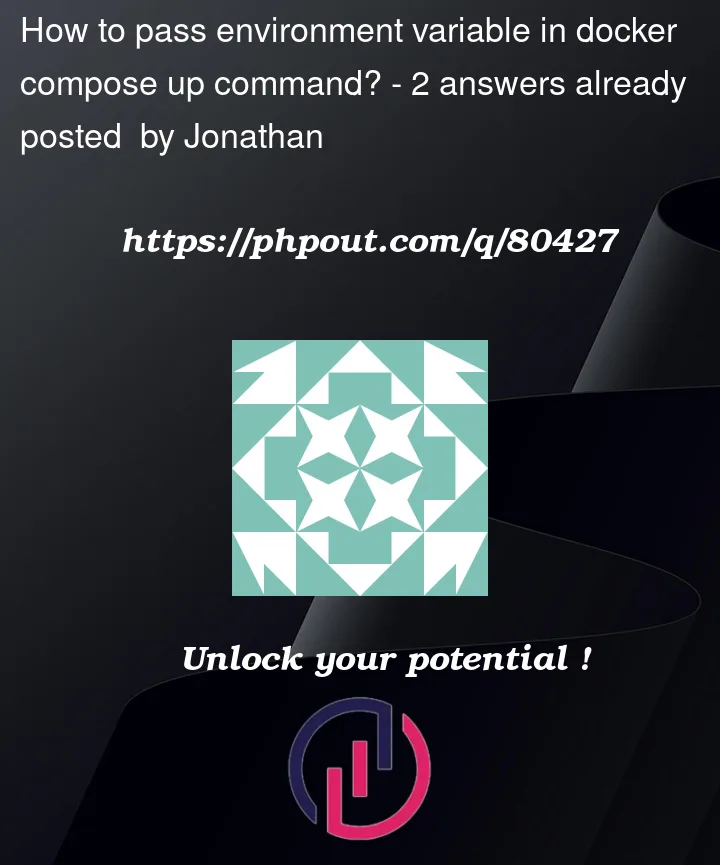I want to pass an environment variable in docker compose up command, but as far as I see it is only possible with docker compose run command as mentioned official documentation:
Set environment variables with docker compose run –env
Similar to docker run –env, you can set environment variables in a one-off container with docker compose run –env or its short form docker compose run -e:
docker compose run -e DEBUG=1 web python console.py
I a trying to integrate Spring Cloud Vault to a Spring Boot app and need to keep the token of the vault secure without using k8, etc. For this purpose, when I run the application, I can pass the environment variable (vault_token variable), but I also need to pass these variable when I run docker compose as shown below:
docker compose up -e vault_token=00000000-0000-0000-0000-000000000000 --build
So, how can I do this? Note that I do not want to read from .env file and just pass while running the command for security reason.
docker-compose.yml:
version: '3.8'
services:
vault:
container_name: vault
image: vault
restart: always
environment:
VAULT_DEV_LISTEN_ADDRESS: '0.0.0.0:8200'
# VAULT_DEV_ROOT_TOKEN_ID: 00000000-0000-0000-0000-000000000000
VAULT_DEV_ROOT_TOKEN_ID: ${vault_token}
ports:
- '8200:8200'
volumes:
- ./volumes/logs:/vault/logs
- ./volumes/file:/vault/file
- ./volumes/config:/vault/config
cap_add:
- IPC_LOCK
Note: I use Windows 11




2
Answers
This puts your token in your shell history, which should not be considered secure… Thus, why
.envfile would be preferred.But you could also use interpolation instead.
or
With
or (assuming linux)
Note that these also expose your token as plaintext in your terminal history, however. To work around this, you could
sourcean external file, or wrapdocker compose upin a script.If you were to use Kubernetes, however (or even, Nomad), then Vault secrets can be mounted as direct environment variables to containers, and therefore your code does not need to use Vault API directly, at all, therefore does not require a token.
The var in the "environment" session, will be used inside of container. If u need set a variable inside container, its fine.
To use variables of system while docker compose deploy the container, just only call it:
Define your environment variable vault_token in the system(Linux):
Get the variable in the docker compose file, for example in the command session: